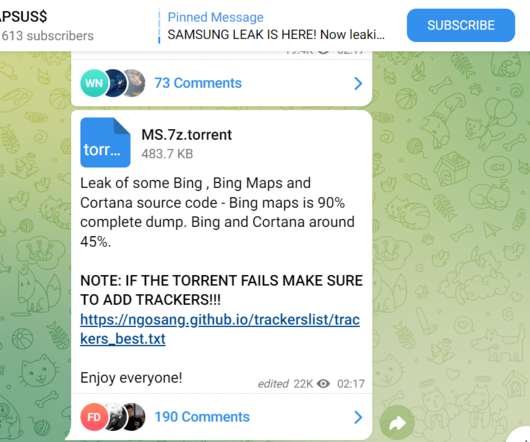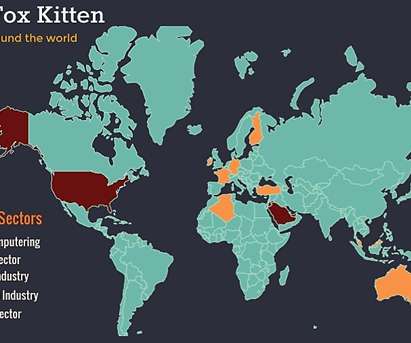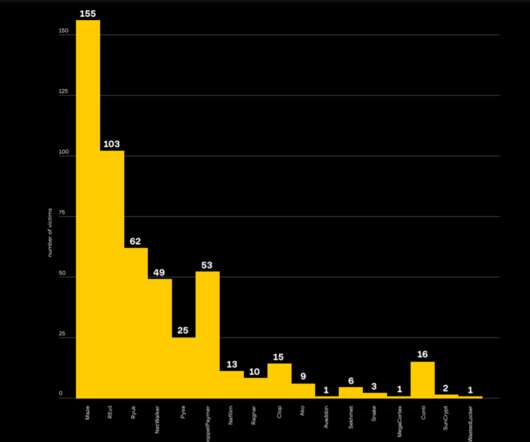Ukrainian police arrested Ransomware gang behind attacks on 50 companies
Security Affairs
JANUARY 14, 2022
The gang was targeting organizations via spam campaigns to spread ransomware, however, the police did not disclose the malware family used by the group in its attacks. The gang was also providing VPN-like services used by other cybercriminal organizations to carry out malicious activities used to deliver malware to the target organization.


















Let's personalize your content